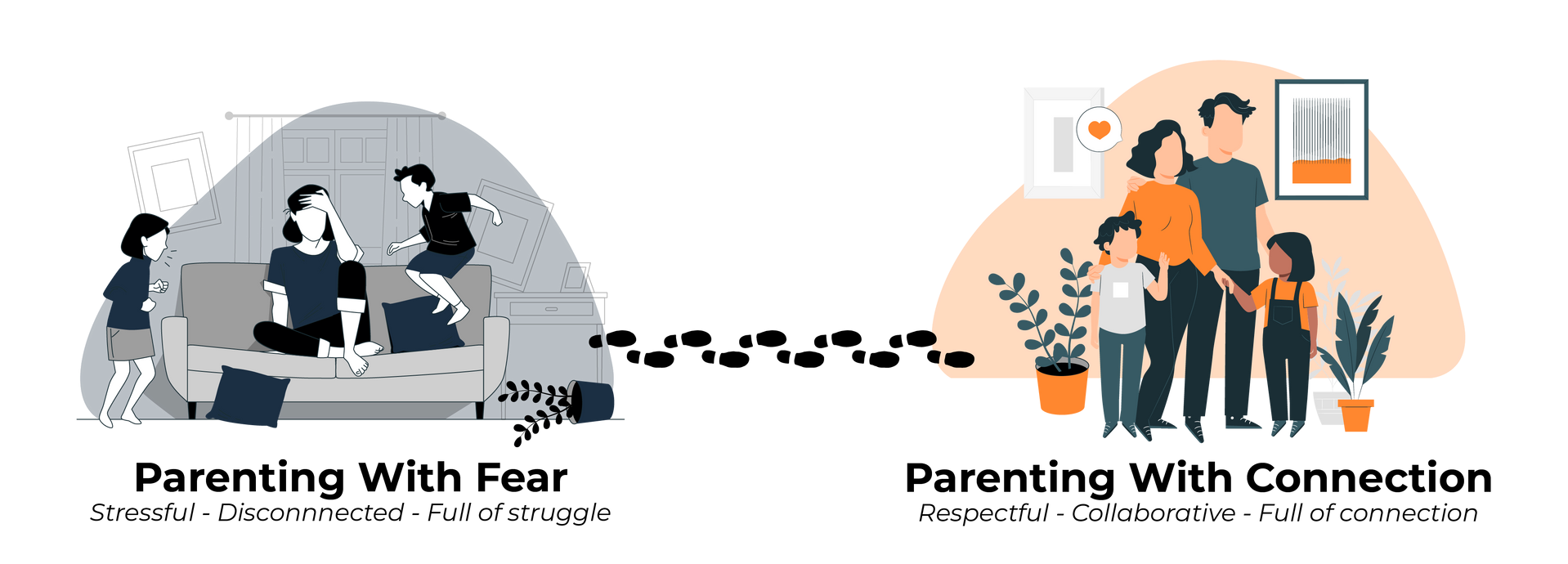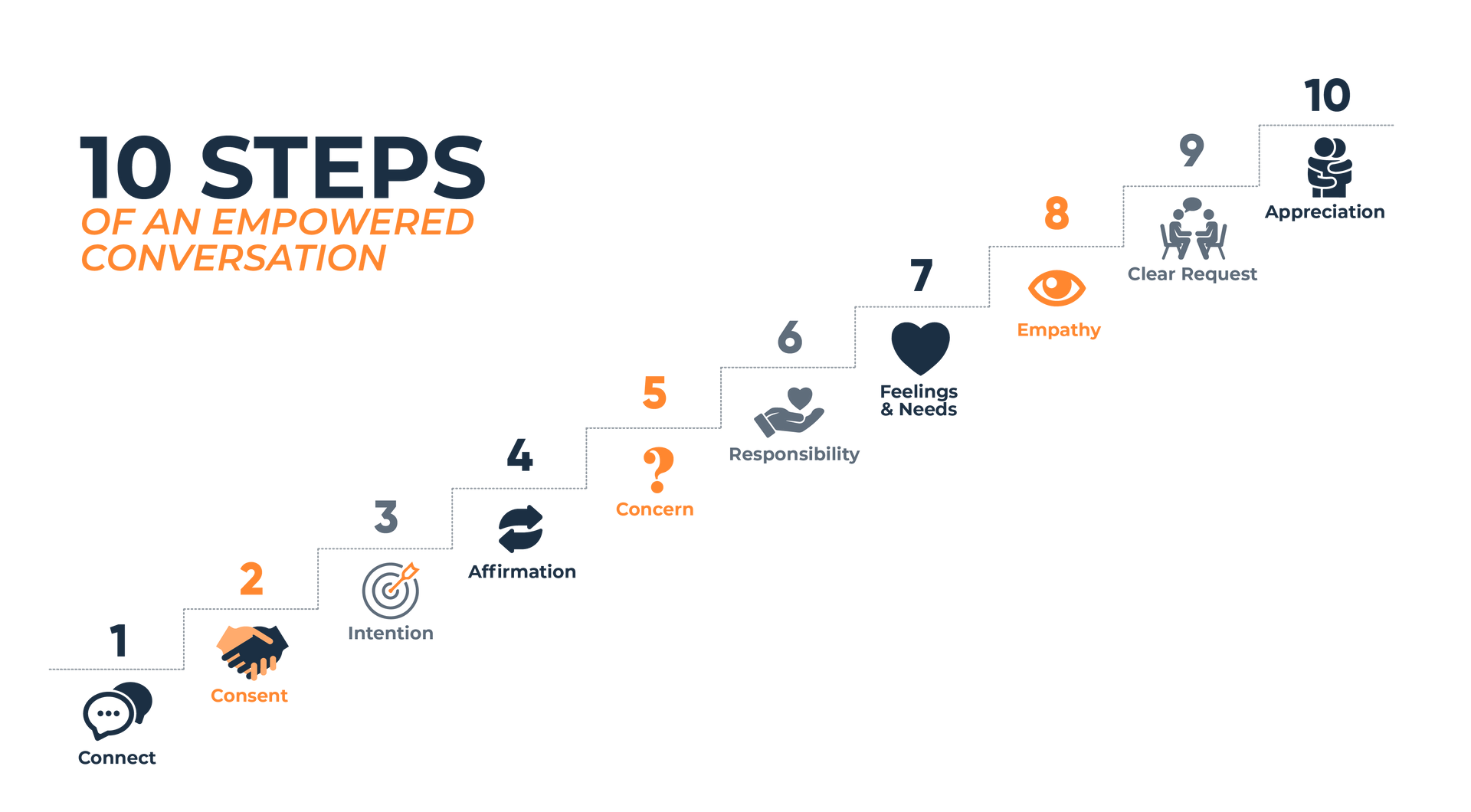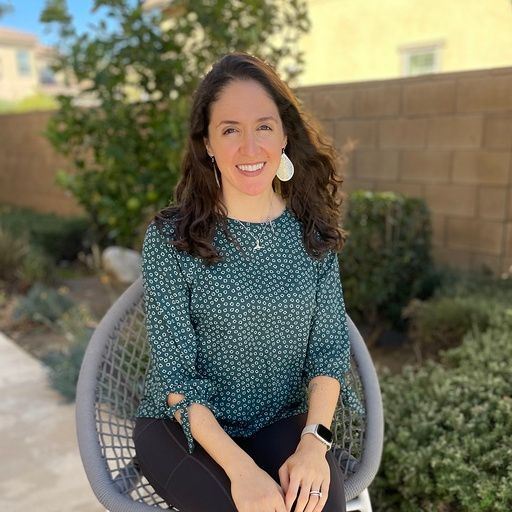The Case for Empowered Parenting

In this article, we will share what Empowered Parenting is and invite you to a vision of how it can look and feel. Right now, we are in the middle of a worldwide paradigm shift as parents begin to confront how we were raised as kids, with control and fear-based obedience at the center of our parent’s strategy.
We are being asked to look at whether we really “turned out okay” or if there are more complex and nuanced layers that point to opportunities for humanity to grow in their maturity, communication skills, and
emotional intelligence. We are beginning to look at the
generational patterns we come from. We are asking ourselves if these are the patterns we wish to pass on to future generations.
New research on attachment science and child development is paving the way toward a new paradigm rooted in connection, curiosity, and unconditional love. This paradigm will take time to shift into and embody. Jai Institute stands at the front of this movement, leading a mission to help families learn about research, build integration skills, and transform together.
We are taking steps away from parenting with fear and control and towards parenting with connection and curiosity. Away from stressful home and family environments filled with daily struggles and disconnection and into a respectful, collaborative, and connected family life. We are at the beginning of a multi-generational untangling and healing journey towards more peace and love in the world. And it begins with us and how we raise our kids.
Current Parenting Paradigm: Using Power Over Children
Before we dive into what Empowered Parenting is, we are going to look at the most common parenting paradigm that has existed for many years. At Jai Institute, we call this paradigm “Power Over” parenting. This is where parents use power to control their children’s behaviors. Our society is extremely focused on children’s behavior. We hold a collective fear that if a child “misbehaves,” they will fail in the world, so they must change now…or else. The irony is that this fear causes us to react in ways that actually harm the child’s potential development – suppressing needs, causing shame, and creating ruptures in relationships and their sense of belonging.
Society pressures parents to have “well-behaved” children who “do what they are told.” As parents, we fear that a child’s behavior reflects how we have done in our parenting when the reality is more complex and nuanced than that. A prefrontal cortex takes 25-30 years to develop fully, yet we expect our 5-year-olds to have impulse control. As a society, we have prioritized obedience and “kindness” in sacrificing individual needs, feelings, developmental appropriateness, and unique strengths and opportunities.
If a child is modeling behaviors they have seen in their own home (yelling, arguing, cursing, etc.), they are seen as “bad.” They are shamed, punished, and controlled with little explanation or support as to why adults can act this way and yet kids cannot. In some parenting moments (and it happens to us all), we are blind to how we act hypocritically – such as screaming, “Stop screaming.” Do you see the irony? We are modeling screaming while giving a control command, telling them to stop screaming.
Children are forced to fit in or else be rejected or abandoned. And so kids learn how to stay safe. How to stay small. How to stay quiet. How to fit in even if it’s not what their bodies or minds are telling them to do.
That’s how we adults become people pleasers. “Keeping the peace,” but slowly dying inside as our inner worlds are anything but peaceful. It’s also how adults become bullies, screaming to be heard. The worst acts in the world are an expression of deeply unseen and rejected pain. Can you feel that?
The worst behaviors are unskillful expressions of deep pain and a longing to be heard and seen. That doesn’t make the behavior “okay,” but it does help us see that there is room to separate the behavior from the person and their inherent “goodness.” We are so obsessed with our kids’ behaviors, and we think they define them as people. “You are being bad” instead of “you are needing support.” We label them with words like “bratty,” “rude,” and “disrespectful,” with little room for understanding why they might be acting this way.
And it makes sense. Behaviors scare us because we have put so much pressure on parents to keep behaviors “in check.” If your child is “misbehaving,” that means you are a “bad parent.” Many parents walk around silently judging one another for their children’s behavior instead of connecting in empathy and compassion for the shared parenting experience and how hard it can be. We don’t offer much grace to parents and their kids these days.
Most humans are operating with some
level of trauma in their systems - most of the time, unconscious. Maybe when you tried to speak up as a kid, you were told to be quiet or that your ideas were foolish. So, you learned not to speak up when you had an idea. Now, as an adult, you struggle to communicate. Our developing bodies and minds are incredibly adaptable and intelligent – wired to look for threats and cues for how to stay safe. We have this amazing relational attachment system that is mostly wired in the first three years of our lives and affects how we relate to others in adulthood. And without warm and attuned present caregivers telling us we are safe, loved, and supported, we grow scared and learn to control ourselves out of safety.
We become perfectionistic, critical of ourselves, always chasing a future goal, and trying so hard to be “good enough.” And many of us are suffering. Look around. The
mental health crisis is growing. There are stress-induced illnesses (read
When the Body Says No by Gabor Maté), addictions, overeating, and screen obsessions. We are all just looking for ways to avoid and escape the moment of life. It doesn’t have to be this way. And the work starts here—with us.
What is Empowered Parenting?

Empowered Parenting is transformational parenting. It is parenting from a place of connection, curiosity, attunement, and nervous system regulation. It is a parenting practice dedicated to freedom—freedom of self-expression, freedom from blame, shame, and control, freedom from unsafe environments (including emotional safety), and freedom from assumptions and accusations.
Empowered parenting means we set
healthy, loving limits. We anchor into our values as a family. We have family meetings. Our kids get a voice. Parents get to hold generous authority with room for collaboration. We get to approach behaviors as signals, and we get to be scientists seeking to understand the root causes and how we can help. We get to focus on skill-building instead of controlling or shutting our kids down. We get to minimize harm and lean into connection. We get to feel connected to our kids. We get to learn from them. We get to experience safety in our bodies when they are having an
absolute meltdown, knowing that this is part of human life. Feelings are the wisdom that we have long forgotten about. And now we get to remember. We get to learn how to feel and allow our emotions. We get to advocate for our children. We get to become our child’s safe
Harbor, not the source of harm and fear.
How do you do Empowered Parenting?
Empowered Parenting is not easy. It is not about scripts or forcing yourself to act a certain way. It is not about getting a quick result. It is not about feeling so much shame and guilt that you swing into permissive parenting to try to make everything “okay.”
Empowered Parenting begins with understanding yourself. Your past. Your childhood. Your triggers and what they tell you. Your own behaviors. Your needs. How you show up in the world. We get to do some untangling in this process as we learn more about who we were when we were born and less about who we became out of fear and control. We get to allow more of ourselves and, thus, more of our kids and each other.
These awarenesses of ourselves alone allow for huge shifts in the family to occur. When you have the consciousness to observe when you are “inside of a pattern” versus “inside of your vision” of your parenting, it’s incredibly empowering. You get to witness the growth and change in your relationships.
And you get to build skills.
The first and arguably most important skill is knowing and regulating your nervous system.
We have long undervalued the importance of our nervous systems as humans. Research shows that our nervous systems are influencing our day-to-day reality. Learning how to work with our nervous systems is a potent path for self-development.
Our nervous systems help us identify when we are “safe” or “unsafe” based on our environment. The reactions of our nervous system are tied to stories and beliefs that were shaped in childhood – what we learned was safe and unsafe. Maybe it was unsafe to be in conflict in your home because of the high amounts of stress, so now, when there is any sign of conflict, you hide, avoid, or run. Your nervous system is flashing DANGER signs internally, and you are reacting to them. Without understanding this, we become victims of our past. To our history. To our trauma. To our triggers.
We can create a relationship with our nervous system. We can start learning what triggers us and what tools help us feel calm. We can take breathing exercises more seriously. We can move our bodies, rock, listen to music, drink warm and soothing drinks, and take hot baths. And we don’t sit in the bath, ruminating about the stress of the day. We really try to get present in the moment and resource ourselves. Getting to know your nervous system is a huge enhancement for your self-care attempts and routines. We are chronically overstimulated and overwhelmed by the high stress and fast-moving pace we have been living in, so it can be hard and slow to practice this.
Another skill we get to develop and practice in Empowered Parenting is how to communicate better and with more conscious intention.
We get to see the pain beneath the behaviors of others and let it shift how we respond — Not by enabling and accepting any hurtful behaviors from others but by deepening our skills for communicating our boundaries and hearing what is being communicated by another person behind their hurtful words. Through this work, we get to move away from judgment and into compassion and deeper intimacy with others. When our child is acting out in a way that we don’t feel is right, we get to have more conscious parenting discipline, shifting from statements like “Stop that right now” to “I am so curious what was going on for you when you did that” and “It makes sense, and I am going to support you in finding ways to express that frustration so that others can hear you better.”
In Empowered Parenting, we also get to design our family life with intention by identifying our family values, having family meetings, and holding each other accountable for our growth and development as humans. We get to let our values guide us.
We get to educate ourselves on what is developmentally appropriate for kids at each age and open up new opportunities for empathy for our kids instead of blaming and shaming them. We get to get more creative in our parenting.
Here’s a Tool: Empowered Conversations

At Jai Institute, we teach theten steps of an empowered conversation. This is a tool you can begin using today with your kids, partner, and other humans in your life. Remember, it’s not about being perfect or feeling awful for how far you might be from embodying this framework. It’s about taking steps toward the vision with humility, compassion, and confidence.
Step 1. Connect
Before we approach any sensitive topic, we find a way to connect – through laughter, gratitude, appreciation, play, and joy.
Step 2. Consent
We ask, “Is this a good time to talk about (something that happened)?” If the answer is no, we respect that, try to find another time that might be better, or check back later.
Step 3. Intention
We establish our intention for the conversation to confirm that the conversation is coming from a place of love and a desire for connection.
Step 4. Affirmation
We affirm what is going well before presenting any feedback or conflict material.
Step 5. Concern
We share our concerns with our child/ren or partner. Do not embellish or over-dramatize. If possible, state as objectively as possible.
Step 6. Responsibility
We take responsibility for our part and apologize clearly.
Step 7. Feelings & Needs
We use “I” statements to communicate our feelings and needs without placing blame or shame on the other person.
Step 8. Empathy
We communicate empathy for the other person’s feelings and needs.
Step 9. Clear Request
We make a specific request for the details of what you would like to happen. A request is NOT a demand.
Step 10. Appreciation
We close with gratitude for the conversation, like “I appreciate you.”
What is the Jai Institute & How Does it Support Empowered Parenting?
Jai Institute is the leading Parent Coach Training Organization. As an institute, we have many contributors to our organization, all passionate leaders in our field.
We have trained over 2,000 parenting coaches from all over the world. Our coaches are transforming 10s of thousands of families and effectively supporting them to make shifts from dominant power-over parenting to empowered parenting, where connection and communication replace punishments, shame, emotional wounding, and unfair consequences that get in the way of learning. This process of generational pattern healing is not easy. It is hard work. It requires humility, courage, confrontation, grief, fear, feeling pain, and commitment. So why do we do it? We heal ourselves and model that to our kids, which is how we heal the world.
Ready to join the movement? You can learn more about
how to become a parent coach on our website or start the process of applying today. If you are looking for support, you can visit our parent coach directory to find your own conscious parenting coach.
Meet Your Author, Marissa Goldenstein
Marissa Goldenstein, a Jai Certified Master Parent Coach, is devoted to guiding parents toward mindfulness and joy in their parenting journey. Marissa demonstrates a proven commitment to innovative education, having a history as a co-founder of a visionary elementary school that focused on cultivating changemakers through curiosity, connection, and community. Leveraging her MBA and an MA in Experimental Psychology, she seamlessly integrates both business and human development insights into her coaching practice.
Beyond coaching, Marissa embraces mindfulness in her own parenting alongside her partner and their two sons, engaging in family dance parties and adventurous learning experiences whenever possible.
http://marissagoldenstein.com
Share This Article:
Curious for more?














